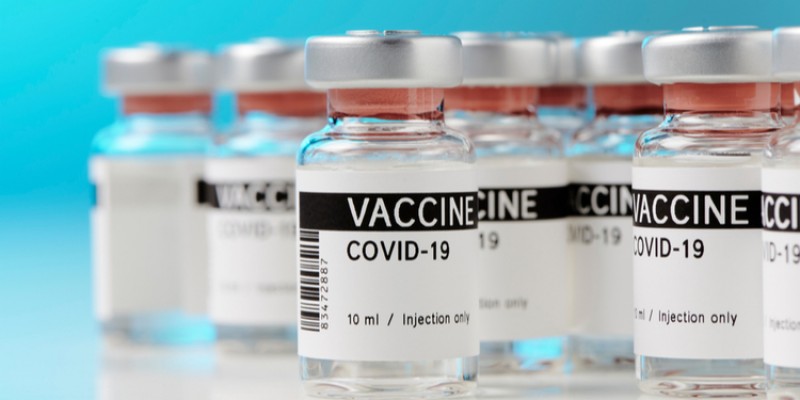
Three vaccines with unexpectedly high efficacy rates are a “game changer” according to the IMF’s chief economist. The first Pfizer vaccine was administered in the UK today, but when can we expect an economic bounce back?
“Economists turned armchair epidemiologists are hastily upgrading their growth expectations for the coming years,” writes the Telegraph, “pencilling in a sooner than expected return to normal for the economy.”
Projections vary hugely and whether you’re reviewing your business strategy for 2021, devising an innovation pipeline or forecasting sales, it’s important to incorporate a realistic consensus view.
With that in mind, we’ve collated snapshot insights from the world’s leading experts on what vaccine roll out means for the UK, EU and global economies:
Cautious optimism for the UK
Deutsche Bank predicts that the UK will see some of the greatest benefits of vaccination, given its repeated lockdowns and stockpiles of pre-ordered doses, including 100 million viles of Oxford’s AstraZeneca vaccine.
Here in the South West, Oxford Economics projects 7% GVA growth in 2021, accompanied by a rise of 67,500 jobs.
Goldman Sachs projects wider UK growth of 6.1% in 2021, accelerating to 7.3% the following year, making it the only region in the study where growth picks up again in 2022. However, the consensus view amongst Bloomberg economists puts the 2022 figure way down at 2.9%.
The National Institute for Economic and Social Research (NIESR) projects similar figures for 2021 growth at 5.9%, but stresses that’s if vaccines become widely available from the middle of the year.
Andrew Bailey, Governor of the Bank of England, echoes this note of caution, “there’s still quite a way to go in production, distribution, and putting all this into action.”
The bank broadly agrees with above estimates for 2021 growth but warns that the economy will not return to its pre-Covid size until the first quarter of 2022. While it expects the UK to avert another recession, it projects that unemployment will rise sharply as government support schemes wind down.
However, Andy Haldane, the bank’s Chief Economist, highlights that the vaccine will eliminate the fear of rolling lockdowns, where the virus resurfaces every time restrictions are lifted, forcing another lockdown and a cycle of stop-start uncertainty.
Consumer spending will likely drive economic revival as this wave of greater certainty begins in H1 2021. The Centre for Economic and Business Research (CEBR) calculates that UK savers tucked away £20bn during the first lockdown and predicts a “fairly euphoric” return to spending over this period.
However, Simon French, of investment bank Panmure Gordon, warns this momentum will be offset by a “scarring effect,” commenting, “businesses will not be able to invest or employ staff on the same scale as before, while they recover and pay off their debts.”
French offers a more cautious outlook, projecting that recovery by 2022 is optimistic, a view shared by Oxford Economics. “It takes about three years after a recession for an economy to recover on average,” he says, “so if this was achieved it would be the fastest economic recovery since World War II.”
Even if Britain leaves the EU without a deal it would have a ‘marginal’ impact on the economy in the short-term compared with the virus, he adds.
Meanwhile, the ‘scarring effect’ intensifies as many businesses struggle to stay afloat long enough to see the benefits of the vaccine. The Telegraph concludes, “businesses that collapsed will not return, the jobless will not immediately be rehired and debt will not vanish.”
Europe set for ‘unsteady’ recovery
Europe was branded the “epicentre” of the initial Coronavirus outbreak and has been hit harder by lockdowns than the US and China. The block did demonstrate resilience by bouncing back faster than expected with record growth of 12.7% in Q3 2020. However, infection rates have since been rising leading to fears of a double dip recession.
European Central Bank head Christine Lagarde warned that “the recovery may not be linear, but rather unsteady, stop-start and contingent on the pace of vaccine roll-out.
“Households could become more fearful about the future and increase their precautionary saving,” she adds. “Firms that have survived up to now by increasing borrowing could decide that remaining open no longer makes business sense.”
The European Central Bank estimates that in a severe but plausible scenario, non-performing loans at euro area banks could reach €1.4tn, well above the levels of the 2008 financial crisis.
“There is one big difference to the financial crisis,” writes the Financial Times. “This time, Europe’s response has been much swifter and more forceful.” The European Commission agreed an unprecedented budget including €1.074tn worth of initiatives between 2021 and 2027, as well as a €750bn recovery fund in July 2020. In 2008, the Commission’s stimulus amounted to just €200bn.
Goldman Sachs Chief Economist, Jan Hatzius, commented “just as the global economy rebounded quickly (albeit partially) from the lockdowns in the spring, we expect the current weakness to give way to much stronger growth when the European lockdowns end and a vaccine becomes available.”
A global race to recovery
China’s output is “already back to pre-pandemic levels, credit is growing rapidly, and fiscal policy remains very expansionary,” said Hatzius.
In the US, NBC reports that the country is still on track for a “slow and gruelling economic recovery,” with the 22 million jobs lost to the pandemic not recovered until 2024.
Globally, the economy is expected to grow by 5.2% in 2021, according to the IMF, leaving it 0.6% larger than in 2019.
For now, the questions of when we can achieve widespread vaccination and how much economic damage will be sustained in the meantime, remain critical.
For support and guidance on navigating the next 18 months of ‘stop-start’ economic growth, speak to our advisors.
- Log in to post comments
Innovate 2021
Webinar series on supporting growing and scaling businesses; enabling you to build on internal strengths and capabilities.
